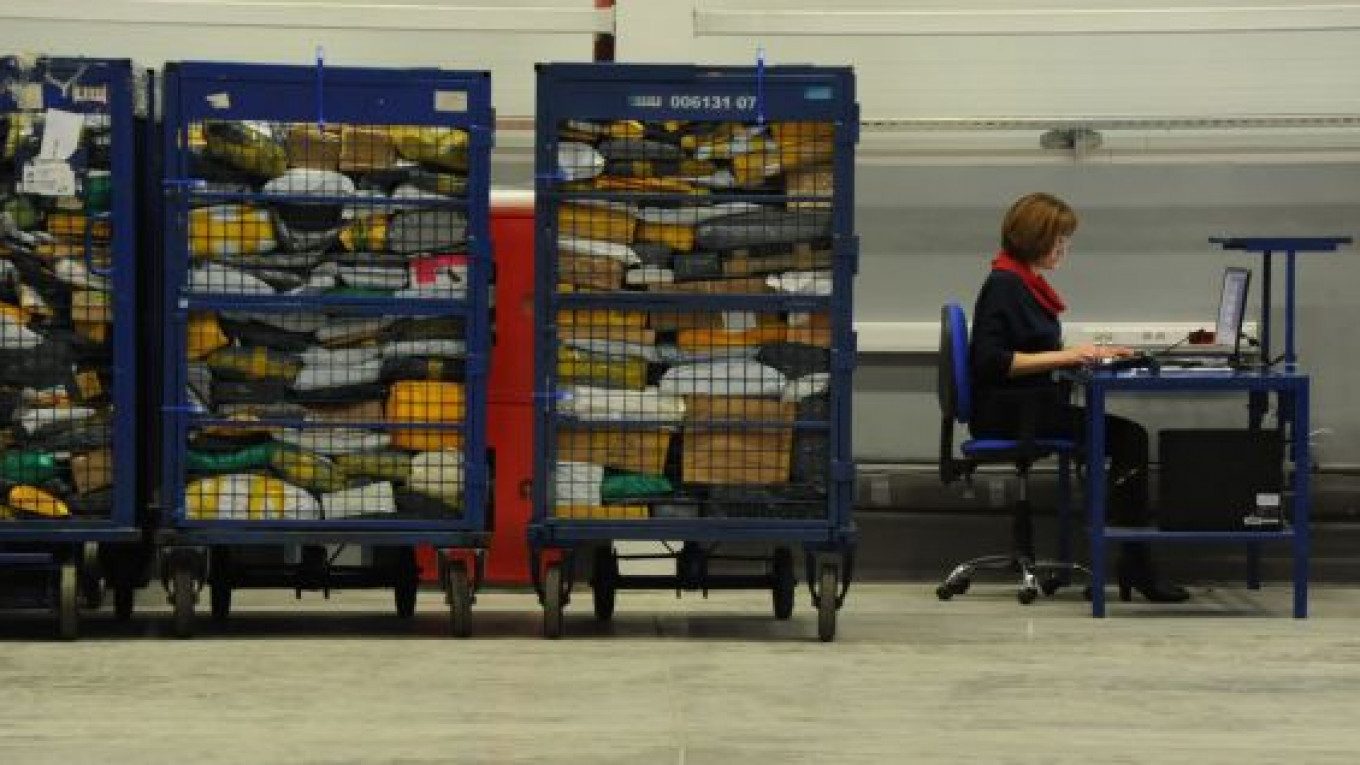Russian Post started a pilot project based at three facilities in St. Petersburg that will allow customers to retrieve packages round-the-clock, the state-owned company said in a press release, and the service will soon be expanded to Moscow.
Recipients will be informed via text messages and emails of their package's arrival.
The targeted amount of time needed to collect it will be kept to three minutes.
The postal service is trying to change its reputation for poor service while rushing to double its revenue and become profitable by 2018 as part of a privatization plan.
Speaking to the State Duma on Wednesday, Communications and Press Minister Nikolai Nikiforov said Russian Post's revenue in 2013 rose to 135 billion rubles ($4 billion), Interfax reported. This is an increase of 4.6 percent over the previous year. The revenue target for 2018 is 291 billion rubles.
At the same time, the company reported that it had coped with the rush of deliveries during the New Year period.
"The bulk of international deliveries are from the U.S. and China," said Deputy Communications and Press Minister Mikhail Yevrayev in a message posted on the ministry's website. "The average length of time taken to deliver a parcel from the U.S. has fallen from between one-and-a-half and two months a year ago, to between 10 to 14 days now. For deliveries from China, shipment time has been reduced from two months to between 9 to 14 days. These delivery times were maintained throughout the holiday period."
Seventy-nine percent of all international post coming into Russia around the New Year was processed in Moscow sorting centers, the ministry said. In time, new regional centers will reduce this figure to 55 percent, increasing efficiency and better reflecting the distribution of customers around the country.
A Message from The Moscow Times:
Dear readers,
We are facing unprecedented challenges. Russia's Prosecutor General's Office has designated The Moscow Times as an "undesirable" organization, criminalizing our work and putting our staff at risk of prosecution. This follows our earlier unjust labeling as a "foreign agent."
These actions are direct attempts to silence independent journalism in Russia. The authorities claim our work "discredits the decisions of the Russian leadership." We see things differently: we strive to provide accurate, unbiased reporting on Russia.
We, the journalists of The Moscow Times, refuse to be silenced. But to continue our work, we need your help.
Your support, no matter how small, makes a world of difference. If you can, please support us monthly starting from just $2. It's quick to set up, and every contribution makes a significant impact.
By supporting The Moscow Times, you're defending open, independent journalism in the face of repression. Thank you for standing with us.
Remind me later.






